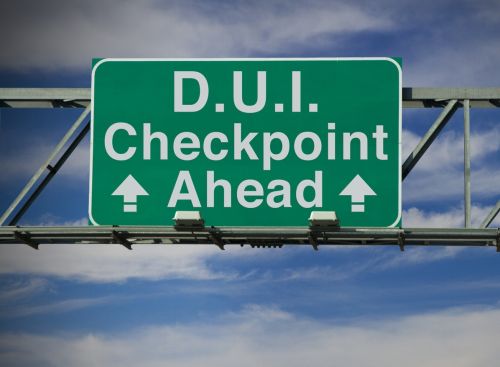Menu



DWI checkpoints in North Carolina are commonly set up in an effort to keep drunk drivers off the road. If a police officer finds that you were impaired when they stop you at a checkpoint, you can face jail time, monetary fines, and loss of your license. While encountering a checkpoint line can be stressful and overwhelming, there are a few things you can do to protect your rights — and make the process less stressful.
Here are several tips for handling a DWI checkpoint in North Carolina:
If you are approaching a DWI checkpoint, do not try to avoid it. Making a u-turn or driving the other way can give rise to reasonable suspicion of impairment — and provide law enforcement with a reason to stop you. Even if you are not impaired by drugs or alcohol, an officer could still initiate a traffic stop and charge you with another offense if you attempt to leave the checkpoint line.
If you are stopped at a DWI checkpoint in North Carolina, you will need to produce your license, registration, and proof of insurance. But it’s important to understand that while you are required to present these documents to the officer, you do not need to answer any questions they might ask, such as where you’re coming from or if you were drinking.
It’s vital to remain calm when encountering law enforcement at a DWI checkpoint in North Carolina. If you appear overly nervous, you may give the officer reason to believe you have something to hide. In addition, be sure to be respectful to the officer and cooperative. Not only is this the fastest way to get through a checkpoint, but being belligerent can escalate the situation and lead to additional charges — regardless of whether you were suspected of a DWI.
The police might ask you various questions at a DWI checkpoint. It’s essential to be aware that you may politely refuse to answer them and ask to have your attorney present. While you might think the officer is only asking general questions, they may be looking for signs of impairment. Critically, you shouldn’t admit to drinking, volunteer any additional information, or make incriminating statements. Anything you say at the stop can be used against you in court if you are charged with a DWI.
The Fourth Amendment of the U.S. Constitution protects against unreasonable searches and seizures. If the officer asks to search your vehicle and they do not have a warrant, you do not have to consent. However, law enforcement can legally search your vehicle if you give your permission, or they see an open container of alcohol in plain view — this can provide them with the probable cause they need to conduct a search without a warrant.
In the event the police officer observes signs of impairment, they may ask you to perform a field sobriety test. These can include the one-leg stand test, the walk and turn test, and the horizontal nystagmus test. There is no penalty for declining a field sobriety test, but if you refuse, you may be asked to take a breath test. All drivers in North Carolina give their implied consent to chemical testing when they receive their license. If you refuse to take a breath test, your license will automatically be suspended by the DMV for one year, regardless of whether you were intoxicated.
Only drive away from a DWI checkpoint in North Carolina when the officer gives you permission to do so. Leaving without permission can be interpreted as suspicious behavior and lead to the officer further investigating you. If you are unsure of when you are free to leave, simply ask the officer.
If you are arrested at a DWI checkpoint for driving while impaired, it’s crucial to contact an attorney who can protect your rights and guide you through the legal process. They can also evaluate your case and develop a strategy to fight the charges against you. The Johnston County criminal defense attorneys at Reece & Reece, Attorneys at Law provide knowledgeable representation for a wide range of criminal offenses in North Carolina, including DWIs. Call (919) 300-1249 to schedule a consultation and learn how we can assist you.
© 2025 Reece & Reece, Attorneys
Legal Disclaimer | Privacy Policy
Law Firm Website Design by The Modern Firm